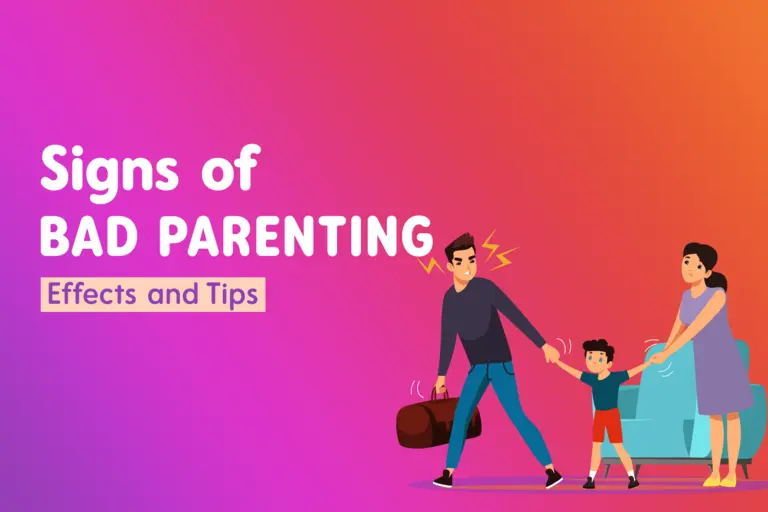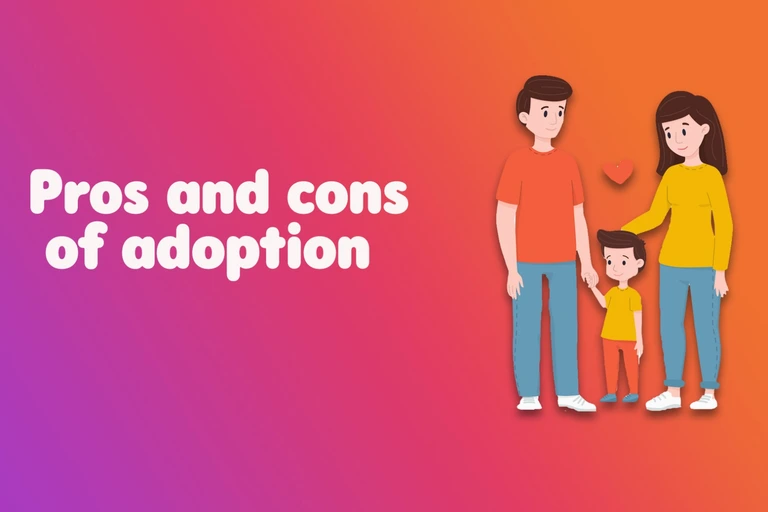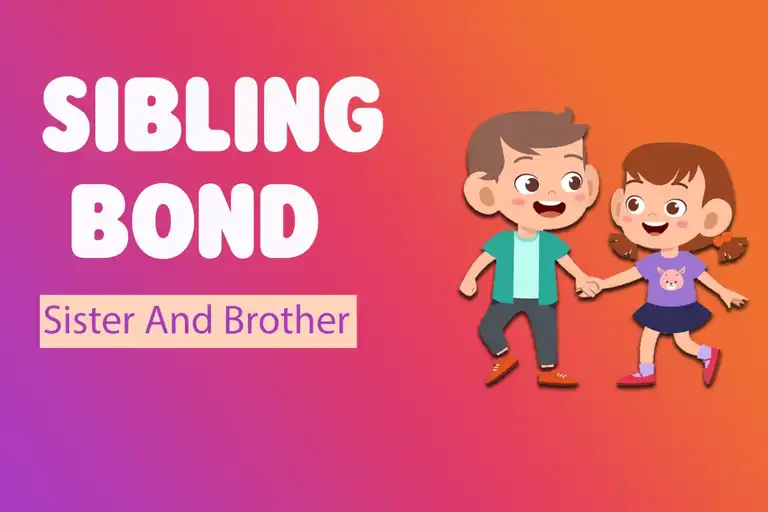Debunking Common Parenting Myths: Fact and Fiction
12 common parenting myths associated with perfect parenting are debunked and explained. These parenting myths are not valid today. For generations, we have continuously heard some common parenting myths. These myths are associated with perfect parenting. Parenting is a lifelong process. Although many people think parenting stops when the child grows up, that’s untrue. It’s a practice that goes on even if your children are grownups. Raising kids is a full-time and as tricky as a typical office job. However, these myths make it more challenging for parents. We aim to debunk the commonly associated myths with perfect parenting.
The Terrible Two’s concept
Many parents have heard a lot about the terrible twos phase, but it’s better to understand that it’s never just a phase that’ll pass. Early childhood experts believe nurturing children’s needs during this phase is vital as it significantly impacts their development. This is the most common parenting myth. The terrible twos are considered as the time when the kid turns 2. This is the age period when a child builds up curiosity and wants to explore the surroundings.
Now, most parents advise stopping their kids from touching unknown things. This hindrance makes the child frustrated. He started to become grumpy and noisy. In this case, the parent’s reaction is of two types. Mostly, take it non-seriously and say, “These horrible twos will pass soon”. On the other hand, the second type tries to punish the child in response to their tantrum and grumpiness. Both reactions are wrong.
This behaviour is expected in children as they can’t control their feelings and emotions. They want to touch, feel, and play with the unknown thing. Don’t stop them doing so. If they approach something dangerous, console them and tell them it’s harmful. Most importantly, do not create fear in them for that specific thing. Be realistic and optimistic.
Moreover, let them express their emotions; otherwise, it will cause maladaptive behaviour in children. You must help your children regulate their behaviour and emotions. The terrible twos is not a phase to let it pass. It’s just a parenting myth. It’s a development period for your children, and you have to lead your kids to balance their emotions appropriately.
Be a perfect parent.
To err is human, and no one is perfect. There is no hard and fast rule that parents must be perfect in parenting. If someone tries to fit you in a frame of ideal parenting, he is crazy. If you don’t know how to bathe your baby correctly, don’t worry; you’ll learn with time. You’ll be perfect at your 3rd child. Being a perfect parent is a common parenting myth that unnecessarily sets norms for parenting. Don’t listen to these myths.
Don’t fight in front of your children.
Conflict is a natural part of any relationship, and children should witness healthy conflict resolution. It’s never about hiding conflicts but showing them how to handle them appropriately as they age. When there are arguments, it indicates that two people have different opinions about one thing. In front of children, expressing differing opinions is ok. However, you should avoid yelling in front of your child when arguing. Otherwise, the child will come to respect it as a personal freedom to disagree and fight for what they believe. Parents must also make apologies in front of their children if they have a disagreement that turns into aggression. Hundreds of books, news columns and TV shows about perfect parenting exist. Every celebrity, every famous person possesses to be a “perfect parent”, but in actuality, they are not. They’ll present methods and habits of their perfect parenting. In reality, this is just for the camera and audience. Every parent knows well how to treat their child. You don’t need to adopt everything you see on media.
Never say NO to your child.
There is a psychological phenomenon associated with the word “No”. According to psychology, children do what they are supposed to stop. Some studies support this, while others are against this philosophy. From a parenting point of view, you can’t say yes to everything your child asks for. There is an assumption of saying “NO” when needed. Also, allowing children to do everything makes them stubborn, and they want every time they ask. It is essential to set a limit for everything. However, do not approach anyone aggressively while saying no. Instead, encourage them and explain the reason.
Screen time is bad for your kids
Although many parents opine that screen time is harmful, teaching your child healthy screen habits is essential. It doesn’t mean everyone should abstain from this myth. It’s about finding a balance that suits your child’s needs. Screen time isn’t always a negative thing.
On the other hand, it is not a good idea to let your child use it regularly. Mothers occasionally give their kids devices only to keep themselves calm. Such conditions are undoubtedly dangerous. kids from 2 to 4 years old may develop a fear of unimagined characters like Dracula or any monster which will lead to develop permanent fear in them. Learn how to help a child with fear.
That’s why, it is also essential for parents to monitor and balance what their kids are watching. It is imperative to establish boundaries of ethics. If parents discover something immoral on their child’s tablet or smartphone, they must deal with it immediately. If not, there will be an unfavorable conclusion to the matter.
A baby walker promotes early walking.
Parents often believe that a baby walker can help their child to walk early. However, pediatricians have debunked this myth, emphasizing that it can break your child’s developmentally crucial process of learning to walk independently. Also, the baby’s bones and muscles are weak in the initial years. When parents put the kids in walkers, it puts pressure, and the bone shapes are prone to crookedness. Furthermore, the walkers can be sold out in American markets as they obstruct the natural walking process. But if your child has already started taking his first steps and tries to walk alone, you can put him in the walker. But avoid putting your child in the bay walker forcefully.
Strategies for good parenting
While most parents employ different strategies and create a set of parameters based on their perspective, no standard of rules defines the ideal parenting techniques. Instead of following the methods and guidelines without question, come to your conclusion. You are connected to your child well. You can choose the best parenting style for your child based on the behaviour and temperament of your baby. The observation and plan development process begins as soon as a woman becomes pregnant. This is the ideal time to watch your child’s habits and make decisions based on them. For instance, if a pregnant woman practices self-discipline, her unborn child may pick up her mother’s controlled behaviour.
Don’t spoil your baby.
Some parents believe in not spoiling a baby, but nurturing a child’s needs and responding to their cues is essential for their emotional well-being. Understanding that meeting your child’s needs doesn’t mean they’ll be spoiled is crucial. It is a common myth that holding the baby too much and being available for him all the time harms your baby. If a baby looks for her mother, asking her to keep or seek her love does not mean he is spoiled. It means the baby has a strong bond with the mother or father. On the contrary, the baby is considered harmful if he hits someone or shows stubborn behaviour. Spending time with your baby guarantees a well-behaved upbringing.
Strict parenting is required for a well-behaved upbringing.
There is a common myth that strict parenting helps raise children. Many parents believe that being rigid leads to well-behaved kids. Still, it’s better to understand that nurturing and providing clear guidelines can effectively instil good behaviour in children without the need for strictness or harsh discipline. The kids that grow up in a calm and loving environment are humbler and more cooperative than those raised in a strict environment. Moreover, authoritarian parenting does not present a well-behaved child. The child led to stubborn and disobedient behaviour. Research shows that children do not learn from fear and strictness. Babies pick polite words and loveable expressions.
Parenting comes naturally
Contrary to the widespread assumption that parenting comes naturally, parenting involves ongoing learning and adaptability. Effective parenting involves understanding child growth and asking for advice when needed. Nobody is a perfect parent by birth. Instead, mastering parenting calls for a systematic and gradual approach. On the other hand, parents can look for support on several websites related to child development, pregnancy, and parenting. The process of learning never ends and never stops. The more you learn, the more you become a successful parent.
Good parents are selfless.
Another parenting myth in the bucket is that good parents are selfless; however, it’s important to prioritize self-care. Being emotionally and physically healthy allows you to better meet your children’s needs and model positive behaviour. Mothers frequently prioritize their baby’s needs before their own. For instance, if a mother’s infant started wailing while she was eating lunch, she would undoubtedly go over to comfort him. Nonetheless, this does not imply that parents should forgo their needs for sleep and sustenance. It is not a good practice to always prioritize the children’s demands. Instead, parents need to have appropriate conversations with their children to explain the causes; believe me, they pay attention. They grasp basic logic. Parenting is undoubtedly tricky, but giving up on yourself causes instability in a marriage. The most excellent way to address this issue is for both parents to be involved in their child’s growth. Assign responsibilities to each parent in turn, and let them take intervals. Take a break, enjoy some fresh air, and a cup of coffee. It will give you the motivation to carry out your duties.
Some kids need tough love.
While some parents advocate tough love, the American Academy of Pediatrics suggests that children need a nurturing and supportive environment. Understanding and meeting your child’s emotional needs is the key to good parenting, rather than resorting to harsh disciplinary measures. According to a study, children who grow up in authoritarian families with intricate parenting styles have delayed brain development and are more likely to experience mental health issues. Additionally, the children’s extracurricular and academic achievements are impacted by rigid behaviour.
Final thoughts on perfect parenting myths
As a parent, you have to multitask. Parents must raise, feed, and physically and emotionally support their children. It’s an intense position that occasionally requires taking a break from ongoing duties. Parenting becomes more difficult for parents who are expected to adhere to these traditional myths. It’s important to dispel the myths passed down from generation to generation. You are not required to trust everything you are told. The parents ‘ job is to find suitable parenting styles and methods to raise their children. It shows that you are an excellent parent if you meet all of your child’s physical, mental, and emotional requirements and offer them support. To encourage new parents, this article attempts to assist parents in debunking and explaining common parenting myths.
Screen time is bad for children
Excess in everything is bad. But this is not the problem. The problem is how to create a balance in everything. The excessive use of screen time is no doubt harmful for kids. It is the responsibility of parents to control screen time for kids. There are some cases where parents hand over screens to their kids just for their comfort. This is harmful actually. Parents should learn how to limit screen time for kids.







